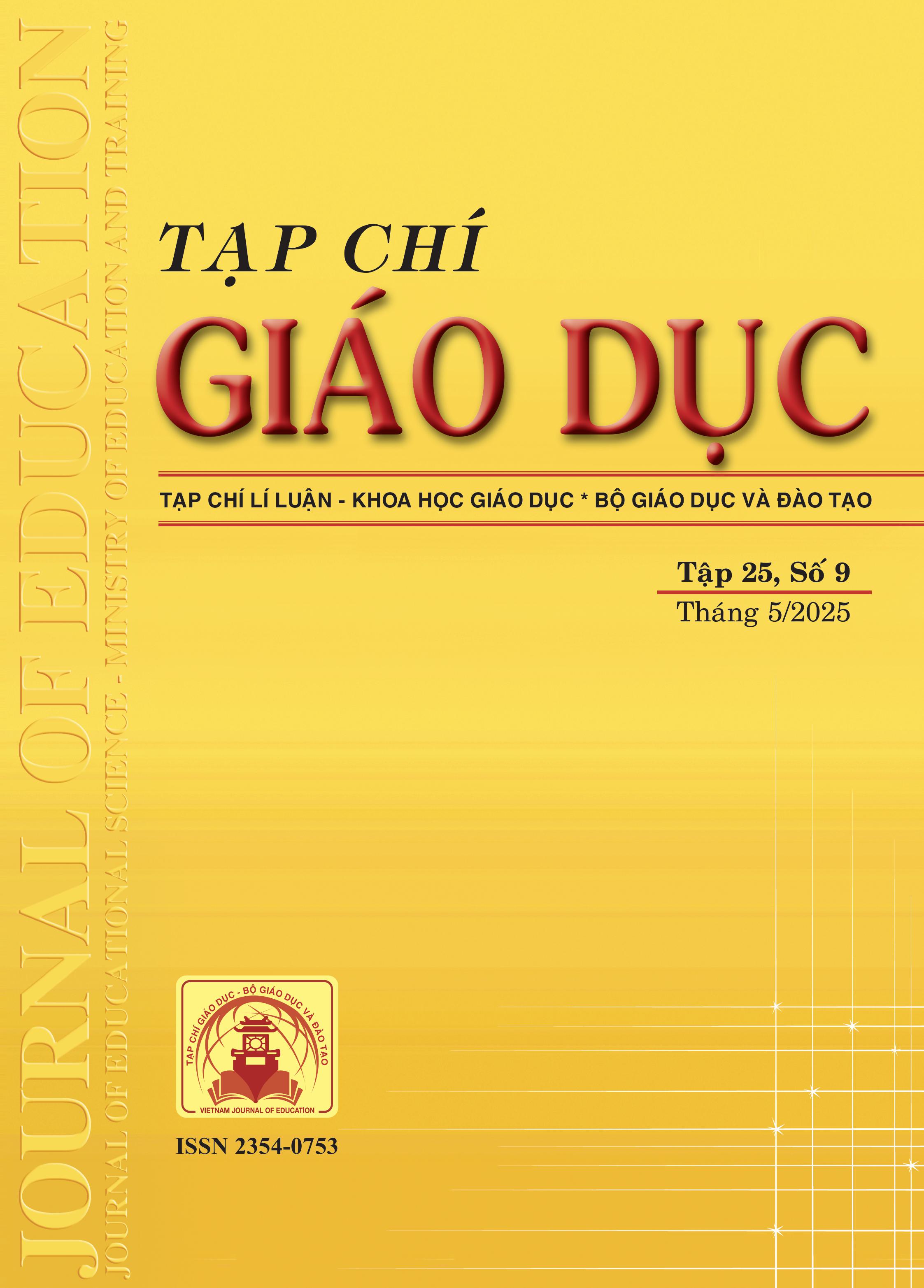Các yếu tố ảnh hưởng đến hoạt động dạy học STEM ở trường trung học cơ sở: nghiên cứu tại thành phố Long Xuyên, tỉnh An Giang
Tóm tắt
STEM education (Science, Technology, Engineering, and Mathematics) has become a crucial trend in modern education, especially in the context of rapid technological advancements. This study evaluates key factors influencing the implementation of STEM education in several lower secondary schools in Long Xuyen City. A survey with 54 teachers and 534 students identifies three primary factors affecting STEM teaching effectiveness: teacher competency (72%), infrastructure and facilities (65%), and student awareness (58%). Specifically, 63% of the teachers reported difficulties in designing STEM lessons, 71% of schools lacked appropriate laboratories and equipment, and 59% of the students expressed interest in STEM but had limited access to hands-on activities. These findings provide essential insights for improving and developing STEM education strategies in lower secondary schools in the region.
Tài liệu tham khảo
Bộ GD-ĐT (2020). Công văn số 3089/BGDĐT-GDTrH ngày 14/8/2020 về việc triển khai thực hiện giáo dục STEM trong giáo dục trung học.
Bybee, R. W. (2010). Advancing STEM Education: A 2020 Vision. Technology and Engineering Teacher, 70(1), 30-35.
Bùi Văn Hồng, Phan Nguyễn Trúc Phương, Nguyễn Quốc Tiệp (2021). Phát triển chương trình bồi dưỡng năng lực dạy học STEM cho giáo viên Công nghệ trung học cơ sở. Tạp chí Giáo dục, 511, 31-34.
Fan, S. C., & Yu, K. C. (2017). How an integrative STEM curriculum can benefit students in engineering design practices. International Journal of Technology and Design Education, 27(1), 107-129.
Fischer, C., Fishman, B., Dede, C., Eisenkraft, A., Frumin, K., Foster, B. (2018). Investigating relationships between school context, teacher professional development, teaching practices, and student achievement in response to a nationwide science reform. Teaching and Teacher Education, 72, 107-121.
Honey, M., Pearson, G., & Schweingruber, H. (2014). STEM Integration in K-12 Education: Status, Prospects, and an Agenda for Research. Washington, DC: The National Academies Press.
Kelly, T. R., & Knowles, J. G. (2016). A Conceptual Framework for Integrated STEM Education. International Journal of STEM Education, 3(1), 1-11. https://doi.org/10.1186/s40594-016-0046-z
Marginson, S., Tytler, R., Freeman, B., & Roberts, K. (2013). STEM: Country Comparisons. Report for the Australian Council of Learned Academies (ACOLA). Melbourne: ACOLA.
Nunnally, J. C., & Bernstein, I. H. (1994). Psychometric theory (3rd ed.). McGraw-Hill.
Nguyễn Văn Cường, Nguyễn Thị Thanh Huyền, Trần Quốc Toản (2021). Những thách thức trong triển khai giáo dục STEM tại các trường phổ thông Việt Nam. Tạp chí Giáo dục và Xã hội, 150(2), 45-52.
Nguyễn Thị Hồng, Lê Quang Anh (2020). Nhận thức của giáo viên về giáo dục STEM trong bối cảnh giáo dục Việt Nam. Tạp chí Khoa học Giáo dục Việt Nam, 12(3), 45-58.
Trần Hoài Nam (2021). Thách thức trong việc triển khai giáo dục STEM ở cấp trung học cơ sở: Góc nhìn từ giáo viên. Tạp chí Khoa học Giáo dục Việt Nam, 12(3), 67-73.
Trần Hoàng Minh (2021). Chương trình giáo dục STEM ở Việt Nam: Thực trạng và giải pháp. Tạp chí Quản lí Nhà nước, 5(2), 32-47.
Tuong Duy, H., & Nguyen Vo Thanh, V. (2021). Enhancing critical thinking through STEM education in Vietnamese National Curriculum. Journal of Science Educational Science, 66(3), 242-253. https://doi.org/10.18173/2354-1075.2021-0130
Wang, H., Moore, T. J., Roehrig, G. H., & Park, M. S. (2011). STEM Integration: Teacher Perceptions and Practice. Journal of Pre-College Engineering Education Research (J-PEER), 1(2), Article 2. https://doi.org/10.5703/1288284314636
Tải xuống
Đã Xuất bản
Cách trích dẫn
Số
Chuyên mục
Giấy phép

Tác phẩm này được cấp phép theo Ghi nhận tác giả của Creative Commons Giấy phép quốc tế 4.0 .












